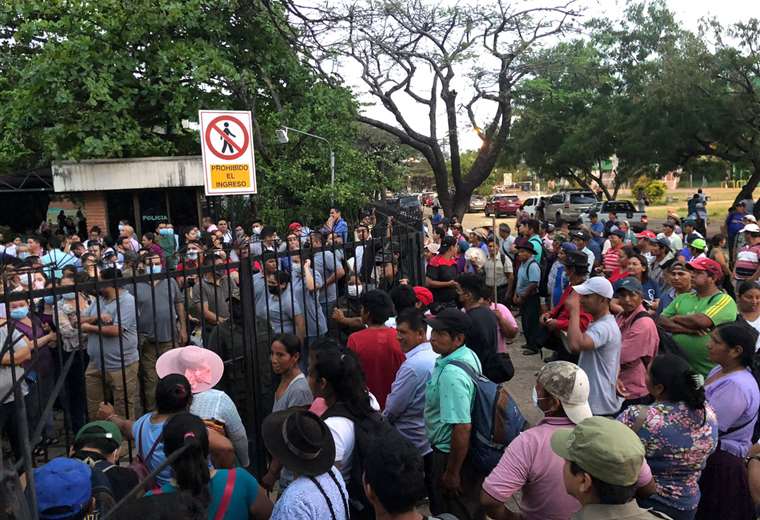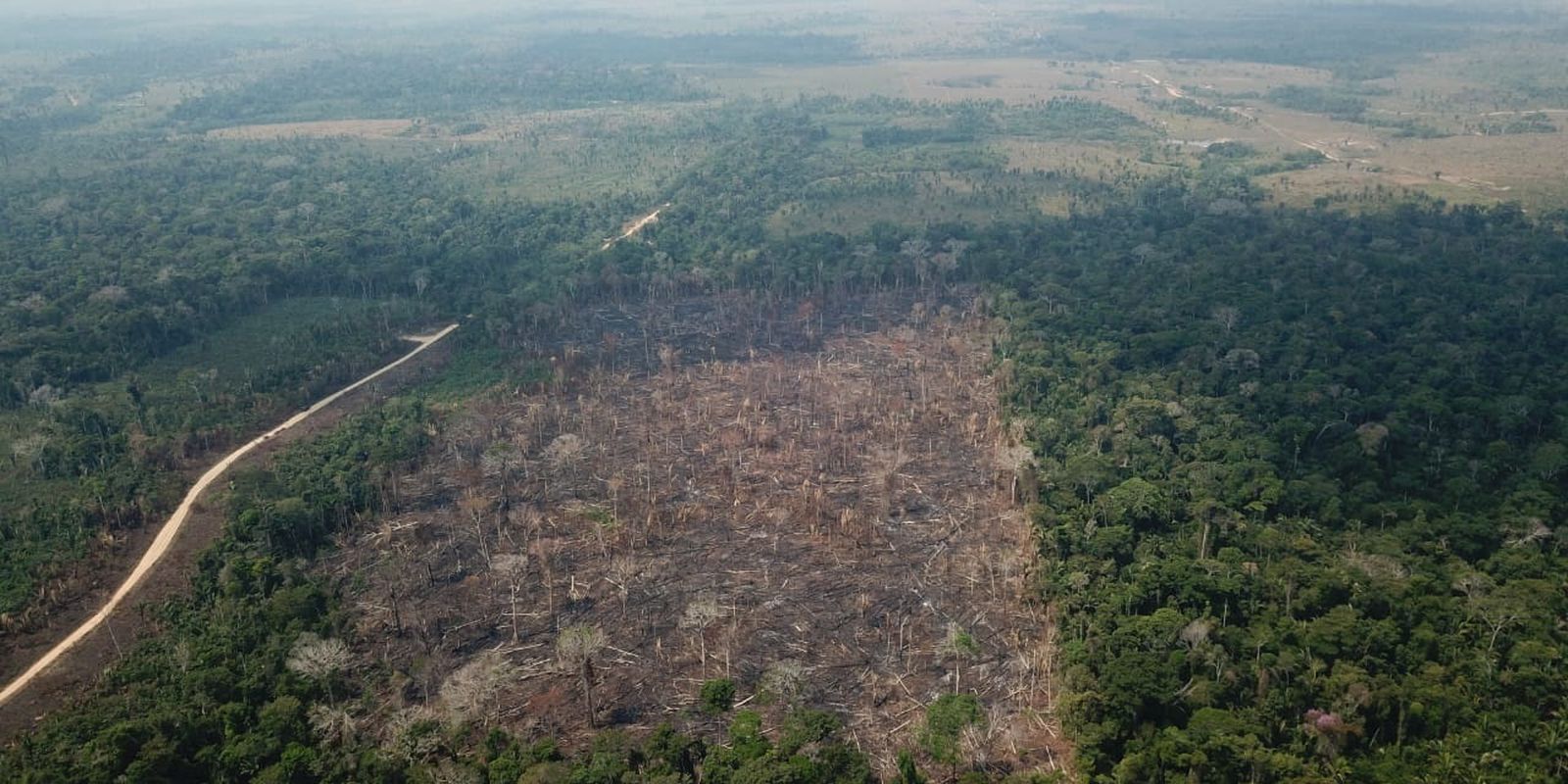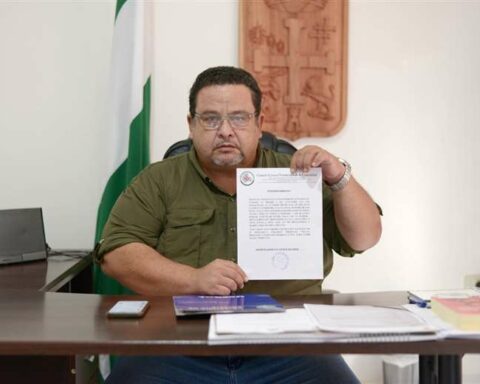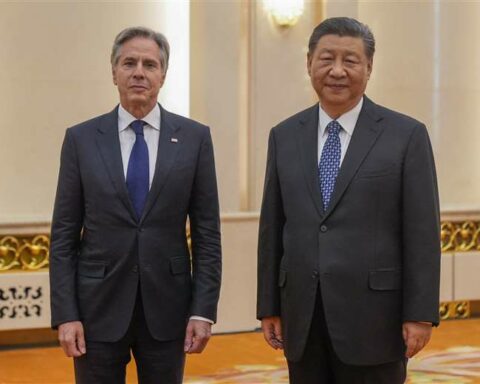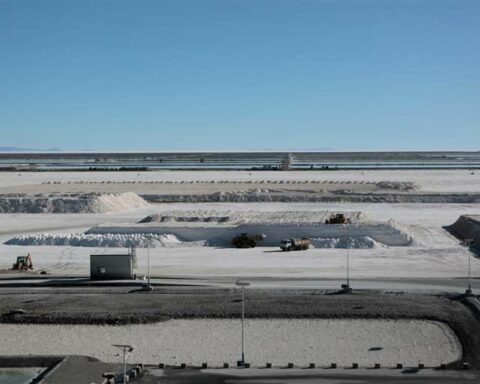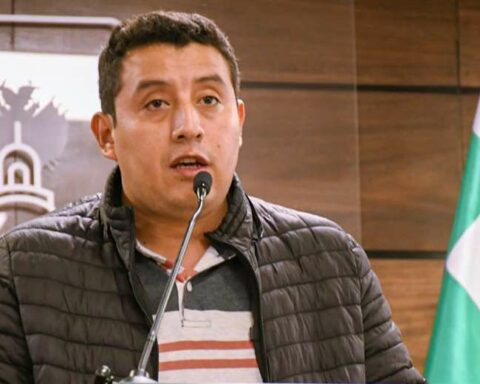October 7, 2022, 10:17 AM
October 7, 2022, 10:17 AM
For three hours the tension between residents of Porongo and officials of the Santa Cruz Government continued. These last, they wanted to leave the offices to return home, but they found the firm position of those who are awake. After a long wait, he was allowed to leave the workers. This happened between 15:00 and 19:00 on Thursday.
Efraín Suárez, adviser of Institutional Management of the Government, described the situation as “kidnapping” since the free locomotion of officials was not allowed. He blames one of the representatives of the driving committee for the Buena Vista-Las Cruces highway, in the municipality of Porongo, for the situation.
“The order to prevent the withdrawal of officials corresponds to Fernando Vázquez,” he told DUTY. This Friday morning will present before the Public Ministry to file a complaint, since “he has committed a crime”he declared.
Roberto Soliz, a resident and producer from Porongo, supports the mobilizations. For the fourth consecutive day, between 1,000 and 1,500 people remain stationed at the gates of the Governor’s Office.
Soliz assures that there are more, some 3,000 families live in the area. Half of them have not been able to regularize their property documents. “It’s not a kidnapping, it’s a vigil”, clarifies in a telephone conversation. Also refers to the alleged “intimidation” suffered by some leaders with process threats.
Despite this, he asserts that they will remain vigilant “until they are heard by the Departmental Legislative Assembly” so that Law 208 is repealed.
Law 208 in the focus of controversy
In April 2022, Governor Luis Fernando Camacho signed an agreement with ABC to make possible the construction of the Buena Vista – Las Cruces highway. In this way, the central government and the departmental authority put an end to an exchange of accusations that led to the blocking of the route to Cochabamba. At that time, it seemed that solutions prevailed over problems.
Months later, the conflict moved to the Departmental Legislative Assembly. ANDhe controversy focuses on Law 208, which declares the area as a Natural Heritage Conservation Unit (UCPN) and limits productive activities in the area.
According to Soliz, “not even the technicians of the Government knew that law.” He also recognizes the lack of knowledge on the part of the community members, since they did not participate in the drafting or consensus of the norm.
“The law was approved on March 10, 2021, at the end of Rubén Costas’ term as governor. It is a malicious law that only favors large urbanizations that the aquifers of the Urubó have in lots”, he details to EL DEBER.
As part of the mobilized sectors, Soliz demands the repeal of the law and seeks a new consensus norm that does not affect Porongo producers. “That norm ties the hands of the municipality of Porongo so that it cannot grow.”
“The law does not violate your proprietary rights”
For his part, Suárez defends the law. “Preserves an important aquifer For the city. It provides the necessary water for two million people. We can’t risk it,” he says.
So far, technicians from both parties have sat down on one occasion to find a way out and put an end to the demonstrations. From the Government they have proposed four alternatives to the road route.
“ABC does not have a final project to present. The proposal is not closed”, reveals the advisor. And it adds one more inconvenience to the preliminary layout. “It is financed by CAF, and CAF cannot go against the environment,” he adds.
Suárez tries to send a message of calm to the community members. “The law does not violate their property rights” he affirms, although clarifies that “there are some restrictions that regulate the production“. He invites the mobilized sectors to the technical tables to seek a consensual solution.
Soliz insists on the importance of repealing the law. “We want to protect our basin with a consensual law,” he explains. “We are producerswe have production of fish farming, fruits and beekeeping. We know how to take care of our environment. We have a project”, he affirms before requesting” a solution that allows things to be done well “, alluding to a new law that regulates the aquifers of the Güendá-Urubo basin.

